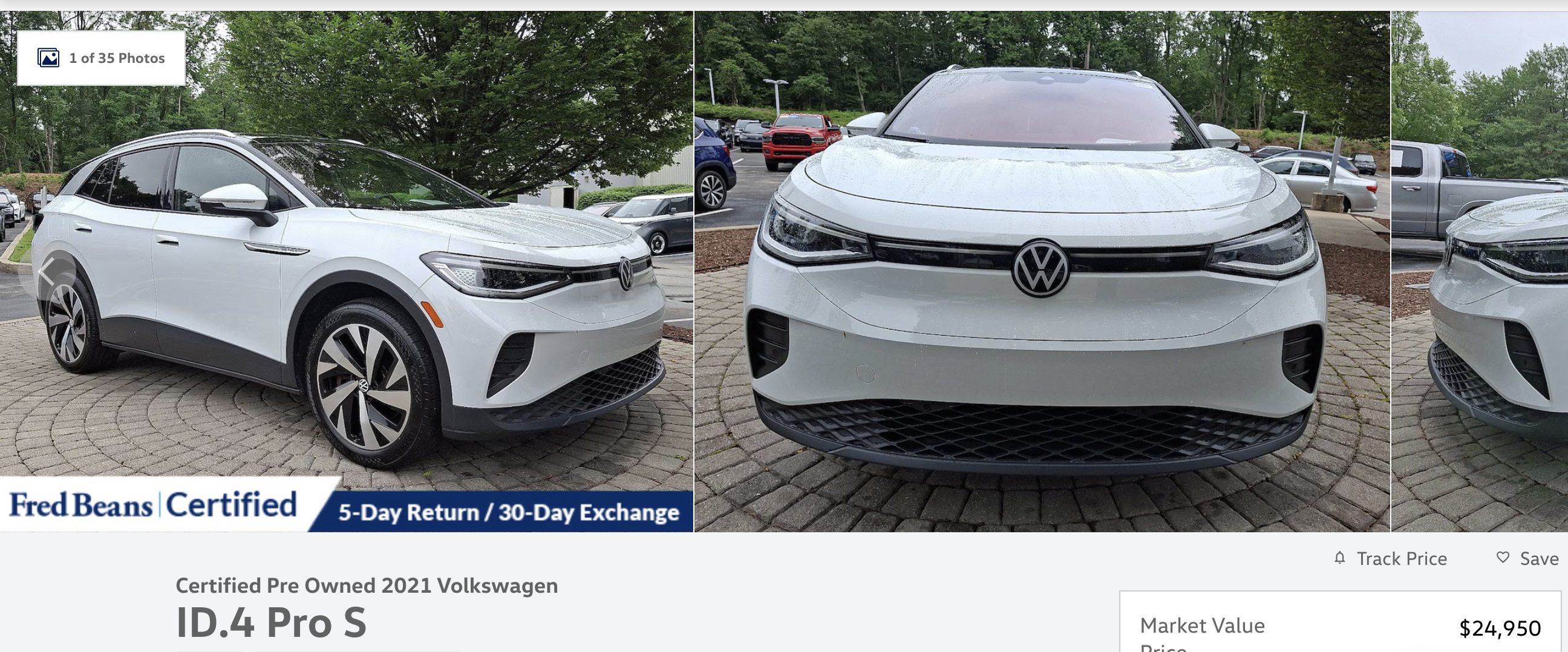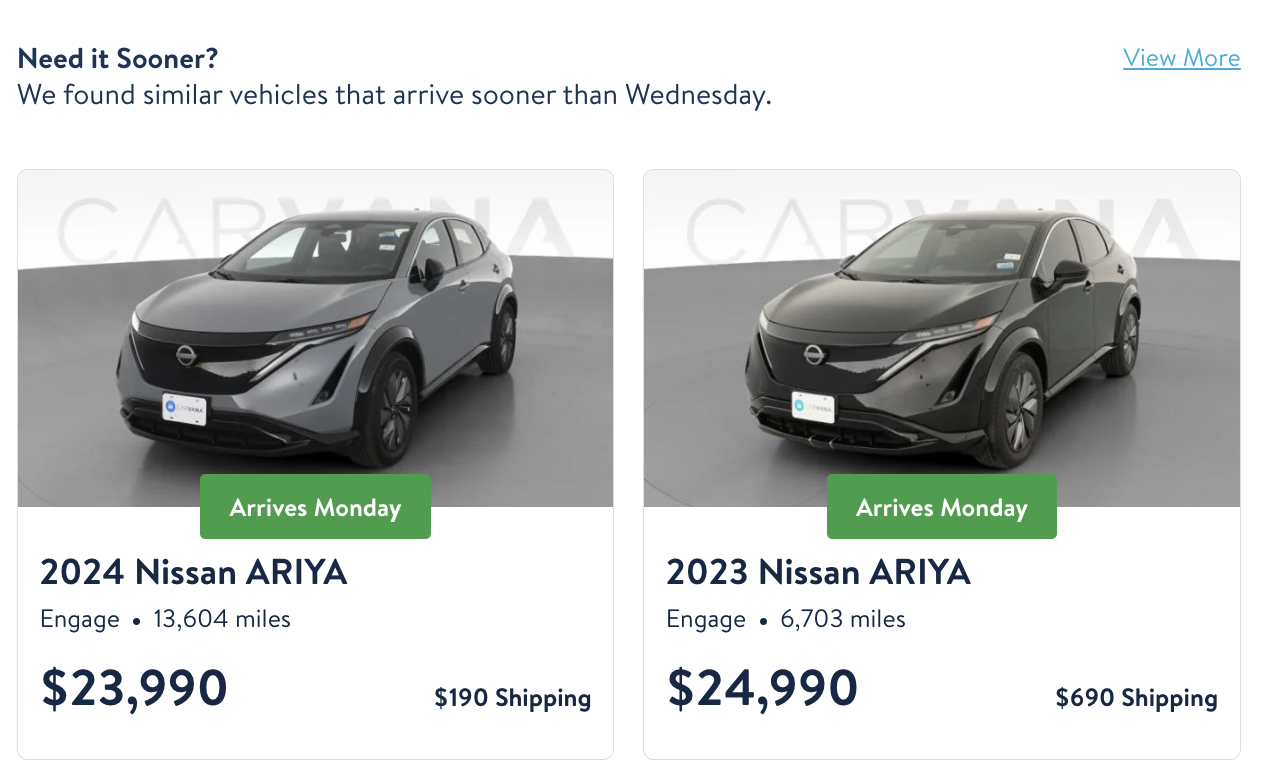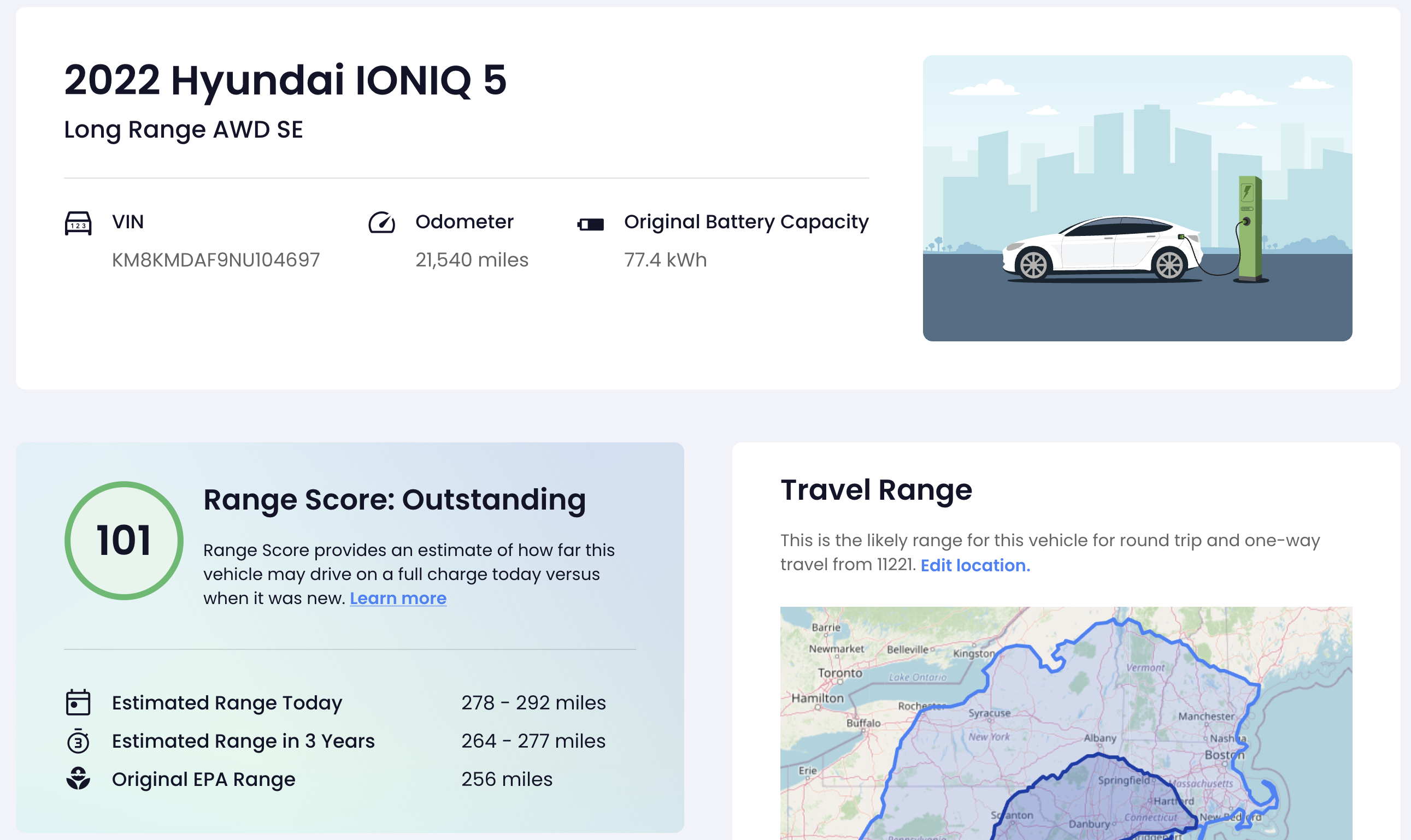Recurrent’s quarterly market report can be quite dense. Since it’s drafted for industry experts, it can be difficult to find the important details for EV owners (like me) or EV shoppers - like a lot of you out there.
It's a great time to buy an EV, so we figured we'd break down what bargains can be found in the used market. Remember: the federal tax credit, which can be used at the point-of-sale as a rebate or down payment, ended September 30, but there are still great deals.
One of the most interesting findings is that a whopping 73% of the used electric cars listings are for 2021 or newer model years. 25% of all listings are 2023 models!
Compared to an aging fleet of used gas cars, that's good news for shoppers. The average age of a used gas car is more than 6 years - that’s a 2019 model year. The average age of a gas car on the road is 12.6 years, or a 2012/2013 model year!
If you look at just cars priced under $25K, the percentage of cars from 2021 or later drops to 32%, or about 1/3 of all used EVs.
.png)
More reasons to check out the used EV market:
- There are 78 all-electric and plug-in hybrids for sale today. The priciest is the BMW XM, with an average price of $124,000. The least expensive is the Ford C-Max, with an average price of under $10K. There are a lot of 2+ year old LEAFs and Chevrolet Volts - both of which may qualify for the tax credit - around the same price. Imagine taking 30% off that!
- Curious about the range on an EV from 2021? The average Range Score, or percent of original range, that a 2021 EV gets is 98%. That's almost "like new." The Range Score jumps to 99% for 2022 + 2023 model years.
- Used Teslas dominate the used EV market. Overall, they are 32% of the inventory, and they make up 35% of the inventory that is priced under $25K, with an average listing price of just $20K. Chevrolet is next with 23%. However, it's not hard to find bargains on many other brands.
All of the following were found for under $25K in the past week:

The Volkswagen ID.4 is a great first EV. 78% of them are listed under $25K, but that isn’t because people don’t love them - you can thank Tesla price cuts in 2023 for their recent affordability. Nearly all the ID.4’s stats are solid: its DC charge speeds, its level 2 charge speeds, a Range Score of 98 (meaning that it's holding it range well), and upcoming access to the Tesla Supercharger.

Nissan Ariya was Recurrent's Best Used EV of 2025. The Ariya hit the market in 2023, and although it didn’t make the splash it could have, part of that was due to its price. Now, with prices under $30K for many configurations, The Ariya is an attractive option. It features a comfortable, tech-forward interior with ProPILOT Assist 2.0, delivering an enhanced semi-autonomous driving experience. If you qualify for the federal tax incentive, you can get one for well under $25K (although note the 2024 is too new to qualilfy!)

The Ioniq 5 made waves with its style and fast charge speeds when it was released as the first car on Hyundai's revolutionary E-GMP platform. The Recurrent Report for this 2022 Hyundai Ioniq 5 shows that you can expect minimal range loss on this award-winning vehicle, also priced under $25K.
This is where the market is today. What if you don't care about - or don't qualify for - the used EV tax credit? Using 2023 lease data from Experian, we forecast influxes of the following used EVs starting in Q4 2025 and through 2026:
- VW ID.4
- BMW i4
- Hyundai Ioniq 5
- Mercedes-Benz EQS
- Ford Mustang Mach-E
- Nissan Ariya
- Kia EV6

-p-500.png)



